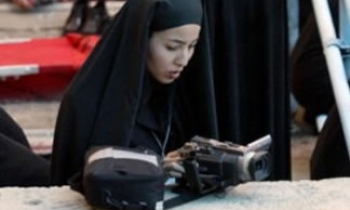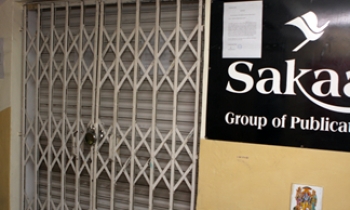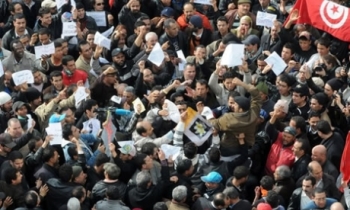The NUJ Pay In The Media Summit this weekend made huge strides towards a sector-wide approach to building on important gains already made and uniting to drive pay up across the entire industry for the future.
Union activists came from all over the country and every media sector to share experience and plan a strategy for an effective pay battle in the coming year.
In his opening speech, NUJ General Secretary Jeremy Dear stressed that major progress had already been made, particularly in newspapers. He emphasised the real difference that growing union recognition was making to pay and explained how much there was to be positive about.
Mr Dear said: "We have won 150 new recognition agreements over the last four years and rebuilt our group chapels. This has meant we have won back holidays and have seen pay figures rise in double percentage figures. Trainee pay has gone up by 25% in the last three years.
"At the same time we have been recruiting more younger members, more women members and increasing the number of reps in workplaces across the country. And, as we grow stronger, employers in every sector are realising that talk alone is not enough, we want action."
But Mr Dear also stressed that there was much still to do pay in many areas was still appalling and journalists were far from being paid a professional wage for a professional job. He pointed to recent NUJ research that showed that media workers earn, on average, £6,000 less a year than their colleagues in comparative professions.
The difficulties faced by freelances in the industry was high on the agenda. Tim Dawson, Chair of the Freelance Industrial Council (FIC), pointed out that we are not either staff employees or freelances but that many NUJ members move between being one or the other during the course of their career.
Mr Dawson pointed to the brave fight by photographers in Scotland as an example of the refusal by freelances to be exploited and forced into unfair contracts just because they do not enjoy the security of the full-time employee.
He stressed that it is in the intereast of media freelances and staff to work together for improvements and called for more joint bargaining. He said: "Freelances need to be included in the pay claim from the outset and their demands must not be the first thing to fall of the table in negotiations. If we don’t work together we will all ultimately fail."
This message was powerfully reiterated by Christine Zaba, also of the FIC, who referred to a ghost army’ of freelance who are isolated as individuals and need to be included more in branch activities for their psychological as well as their financial wellbeing.
Other speakers throughout the day shared the lessons good and bad that they had learned during disputes and negotiations in the last year. Vice President Chris Morley chaired a spirited and often humorous discussion of tactics, triumphs and disasters and members broke for lunch fired up for the Group Chapel meetings that took place during the break.
In the afternoon, excellent practical advice on drawing up a pay claim was given by Pete Lazenby FoC at the Yorkshire Post and Bob Smith, Group FoC at for Newsquest. This was followed by a session on the Do’s and Don’ts of pay negotiations led by Northern Organiser Miles Barter and Scottish Organiser Paul Holleran who both teased out some thorny issues and helped provide possible solutions.
The day was rounded off by Michelle Stanistreet, MoC at the Daily Express, and General Secretary Jeremy Dear. They reiterated the importance of recognising the positives and sharing with each other the progress we have made. They stressed that the key to success was strong organisation to recruit better, represent better and to secure a higher profile for our concerns.
Jeremy Dear confirmed that the union would hold a National Day of Action next year on to demand better pay for media workers across all sectors.









